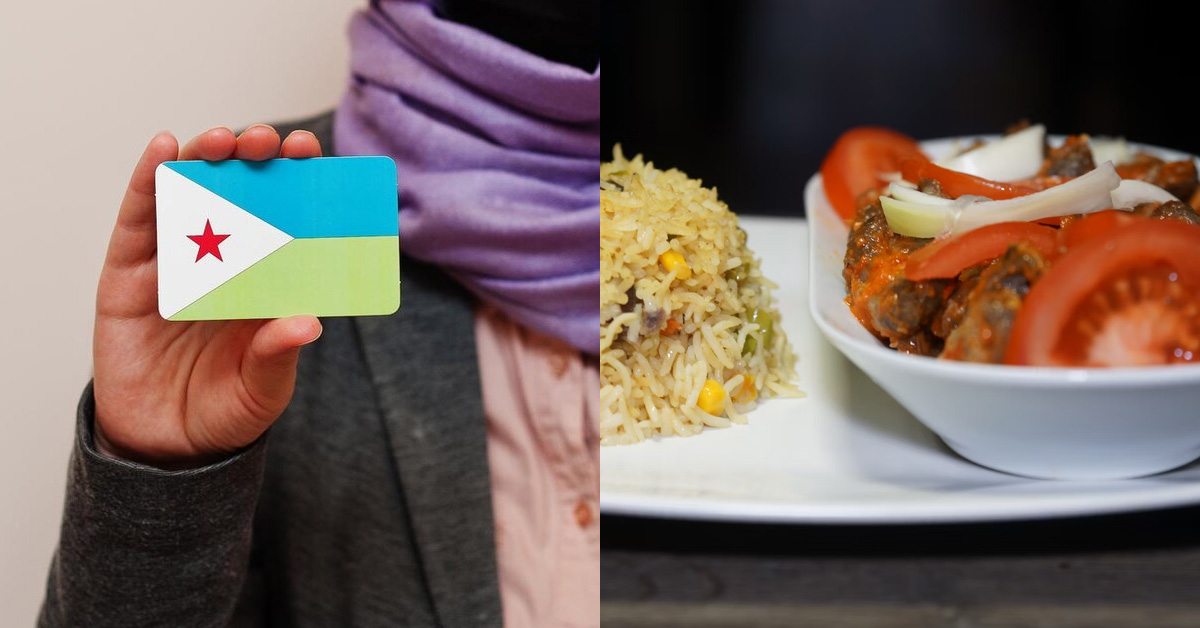Djiboutian cuisine is a unique blend of African, Middle Eastern, and French influences. Located in the Horn of Africa, Djibouti is a small country with a rich culinary heritage.
The country’s cuisine is characterized by its use of spices, herbs, and aromatic ingredients, which give its dishes a distinct flavor and aroma. Djiboutian food is also known for its simplicity, with many dishes consisting of just a few ingredients.
Djiboutian cuisine halal or not?
Is Djiboutian food halal?
Yes, Djiboutian food is predominantly halal as the majority of the population is Muslim and follows Islamic dietary laws.
However, some dishes may contain non-halal ingredients such as pork or alcohol, so it is important to check before consuming.
What kind of food do Djiboutian eat?
Djiboutian cuisine is influenced by Somali, Ethiopian, and French cuisine. Some popular dishes include:
- Skoudehkaris – a rice dish with meat, vegetables, and spices
- Lahoh – a type of pancake made from fermented dough
- Cambuulo – a stew made from black-eyed peas and spices
- Maraq – a spicy soup made with meat and vegetables
- Injera – a sourdough flatbread served with stews and curries
- Fah-fah – a spicy soup made with meat, vegetables, and noodles
- Bariis iskukaris – a rice dish with meat, vegetables, and spices
- Suqaar – a stir-fry dish made with meat, vegetables, and spices
- Hilib ari – grilled goat meat
- Shigni – a spicy beef stew.
How can you tell if the food is halal in Djibouti?
In Djibouti, halal food is widely available, and most restaurants and food establishments serve halal food. However, to ensure that the food is halal, you can look for the halal certification or ask the restaurant staff if the food is halal.
You can also look for the “Halal” sign or symbol displayed in the restaurant or food establishment. It is also recommended to check the ingredients used in the food to ensure that they are halal.
Is it hard to find halal food in Djibouti?
According to research, it is not hard to find halal food in Djibouti. Djibouti is an Islamic country, and the majority of the population follows the Islamic dietary laws.
Therefore, halal food is widely available in restaurants, cafes, and supermarkets. However, it is always advisable to check the halal certification of the food before consuming it.
Is Djiboutian food healthy?
Djiboutian cuisine is a mix of African, Middle Eastern, and French influences. The traditional diet is based on meat, fish, and vegetables, with a focus on stews and soups. Some popular dishes include Skoudehkaris (rice with meat and vegetables), Lahoh (pancake-like bread), and Maraq (spicy soup).
Djiboutian food can be healthy if it is prepared with fresh ingredients and in moderation. However, some dishes may be high in fat and salt, so it is important to be mindful of portion sizes and balance meals with fruits and vegetables.
What is Djiboutian food similar to?
Djiboutian food is similar to other East African and Middle Eastern cuisines, with influences from Somali, Ethiopian, Yemeni, and French cuisine. It often includes dishes such as grilled meats, stews, flatbreads, and spiced rice dishes.
Some popular dishes include Fah-fah (spicy soup), Skoudehkaris (spiced rice with meat), and Lahoh (pancake-like bread).
Steps to find halal food in Djibouti
Here are some tips to find halal food in Djibouti:
- Research halal food options in Djibouti: Start by researching halal food options in Djibouti. You can use search engines, social media, or food blogs to find restaurants and food outlets that serve halal food.
- Check for halal certification: Once you have a list of halal food options, check if they have halal certification. Halal certification ensures that the food is prepared according to Islamic dietary laws.
- Ask locals: Ask locals for recommendations on halal food options. They can provide you with information on the best halal restaurants and food outlets in the area.
- Use halal food apps: There are several halal food apps available that can help you find halal food options in Djibouti. These apps provide information on halal restaurants, food outlets, and grocery stores.
- Visit halal grocery stores: If you prefer to cook your own food, visit halal grocery stores in Djibouti. These stores sell halal meat, poultry, and other food items that are prepared according to Islamic dietary laws.
- Check menus: When visiting a restaurant, check the menu to ensure that the food is halal. Look for dishes that are made with halal meat or poultry and avoid dishes that contain alcohol or non-halal ingredients.
- Ask questions: If you are unsure about the halal status of a food item, ask the restaurant staff or the food outlet owner. They can provide you with information on the ingredients and preparation methods used.

